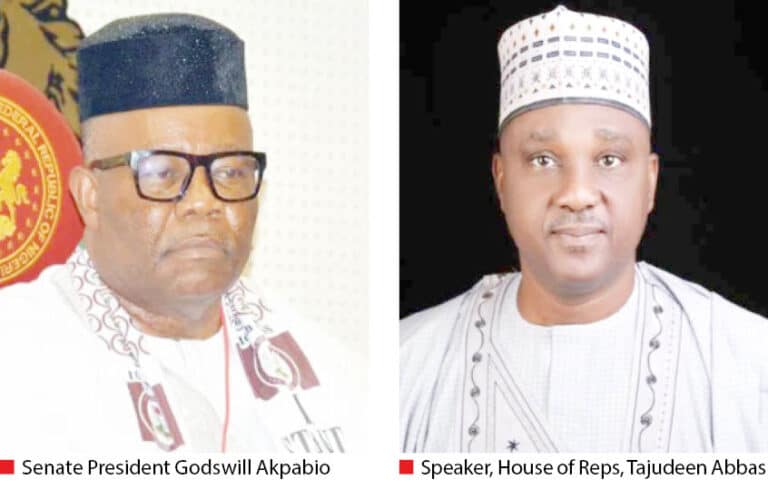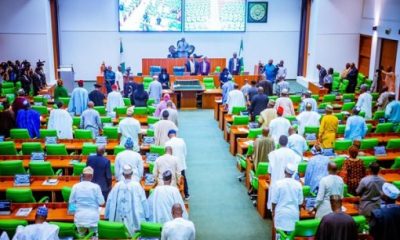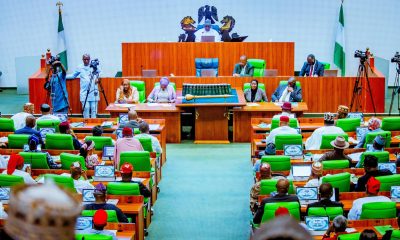Politics
NASS Queried For Bloated Standing Committees

Sequel to the unveiling of chairmen of standing committees last week, some experts have expressed concerns about alleged bloated committees by the National Assembly.
Naija News recalls that the Speaker of the House of Representatives, Tajudeen Abbas, last Thursday unveiled the chairpersons of standing committees,
The development came six weeks after the inauguration of the 10th National Assembly and four weeks after the emergence of principal officers in both chambers.
While the Speaker has raised the number of the committees from 105 to 134, the Senate President, Godswill Akpabio, announced the chairs of nine committees earlier in the month, and 60 more to be announced in the coming days.
The constitution, however, supports the National Assembly to work in smaller units at the committee’s level.
The functions of committees are spelt out in the constitution and the rules of each House.
These committees carry out the various oversight and special functions as specified by law, including investigating government policies, reviewing and approving budgets, consideration of bills and probe of alleged infractions by government agencies, and recommending appropriate sanctions where laws are violated.
However, some experts have queried how committees are bloated at every legislative session.
They said boosted committees have caused overlapping functions, which is evidence of the poor oversight of government agencies.
They argued that the creation of excess committees was created for political patronage rather than for legislative effectiveness and productivity.
Speaking to Daily Trust, Director of the African Parliamentary Advocacy and Reform Group (APARG), a civil society organisation, Chibuzo Okereke, in a letter to the Speaker, said increasing House committees was outrageous and counterproductive.
He suggested reducing the committees to about 60 to ensure effectiveness and productivity in overseeing legislative functions.
Okerekein told Daily Trust that “The trends in political decisions to progressively increase the quantity of the standing committees rather than their quality has resulted in a serious decline in legislative assertiveness, effectiveness, productivity and value for money in public service delivery, arising from weak oversight, low participation of members in the numerous perceived low-grade committees, conflicts in the exercise of legislative oversight powers on executive agencies, distress on the limited infrastructure for committee meetings and continuous low perception of citizens on the significance of the governance role of the National Assembly to Nigerians.
“Accordingly, the excessive fragmentation and proliferation of the committee system without consideration of the important principles of robustness and effectiveness weaken the House of Representatives, and it is akin to giving birth to a baby and throwing it away to fight for survival alone.
“An empirical analysis of the 109 standing committees of the 9th House of Representatives shows that several of the committees did not hold any meeting nor perform any significant legislative activity under their committees throughout the lifespan of the Assembly, while some of them held meetings only for few times in the entire four years.
“It is for the above reasons and more that we write this open letter as citizens, legislative advocates, and experts to urge the Speaker and the leadership to intervene and change the tide in the trends of proliferation and excessive fragmentation of the committee system in the 10th House of Representatives to help engender an effective and productive oversight system and improve the image and perception of the National Assembly.”












